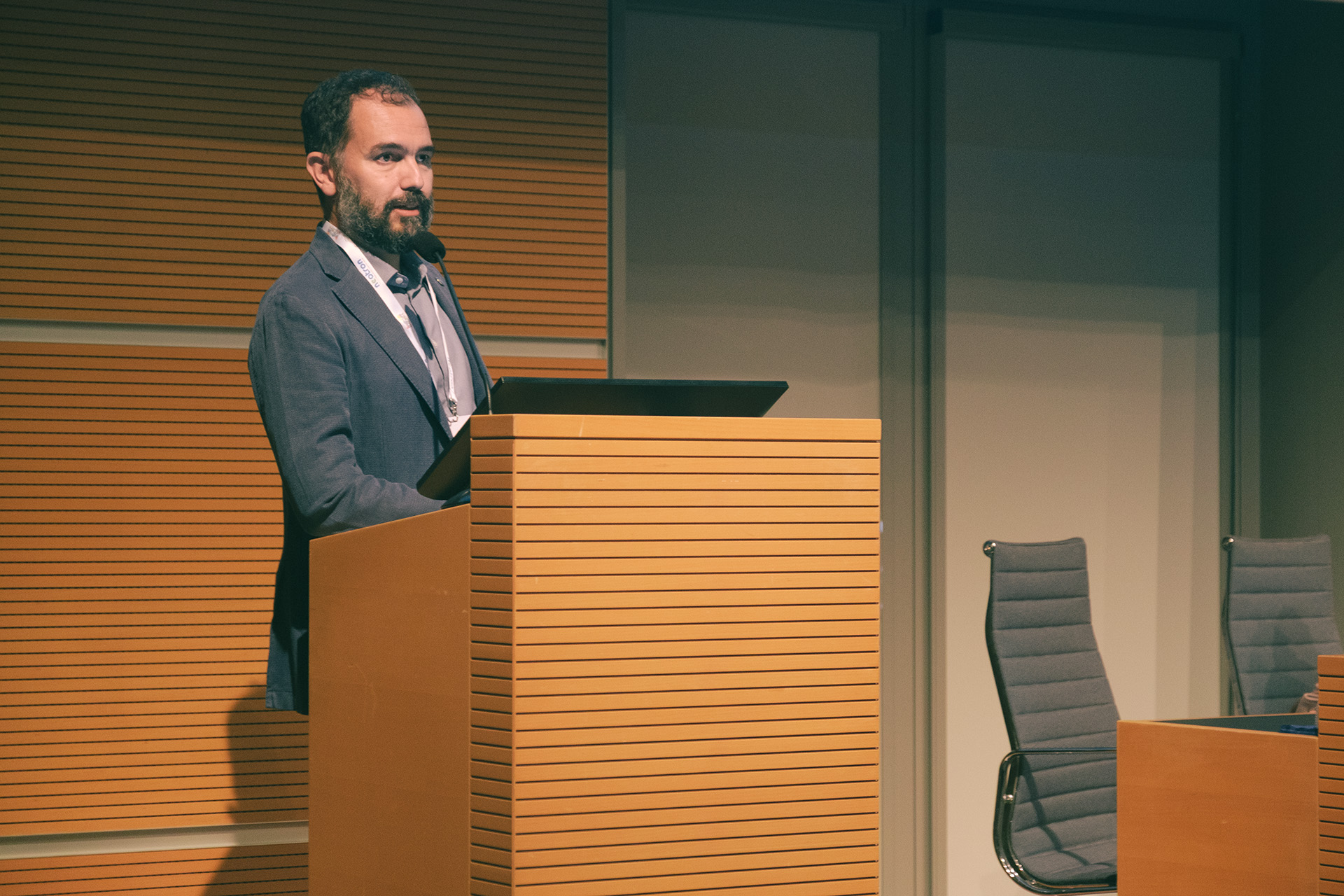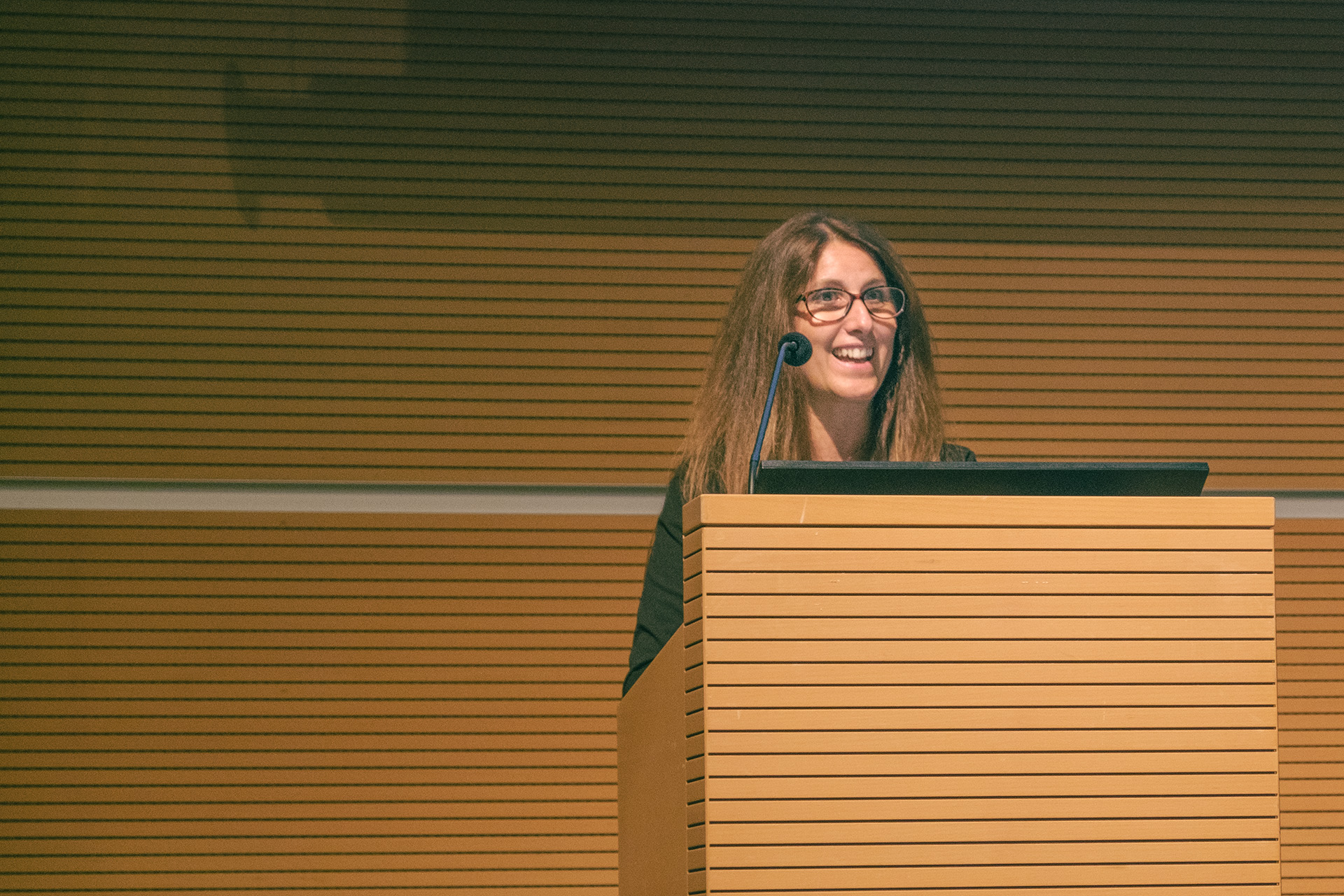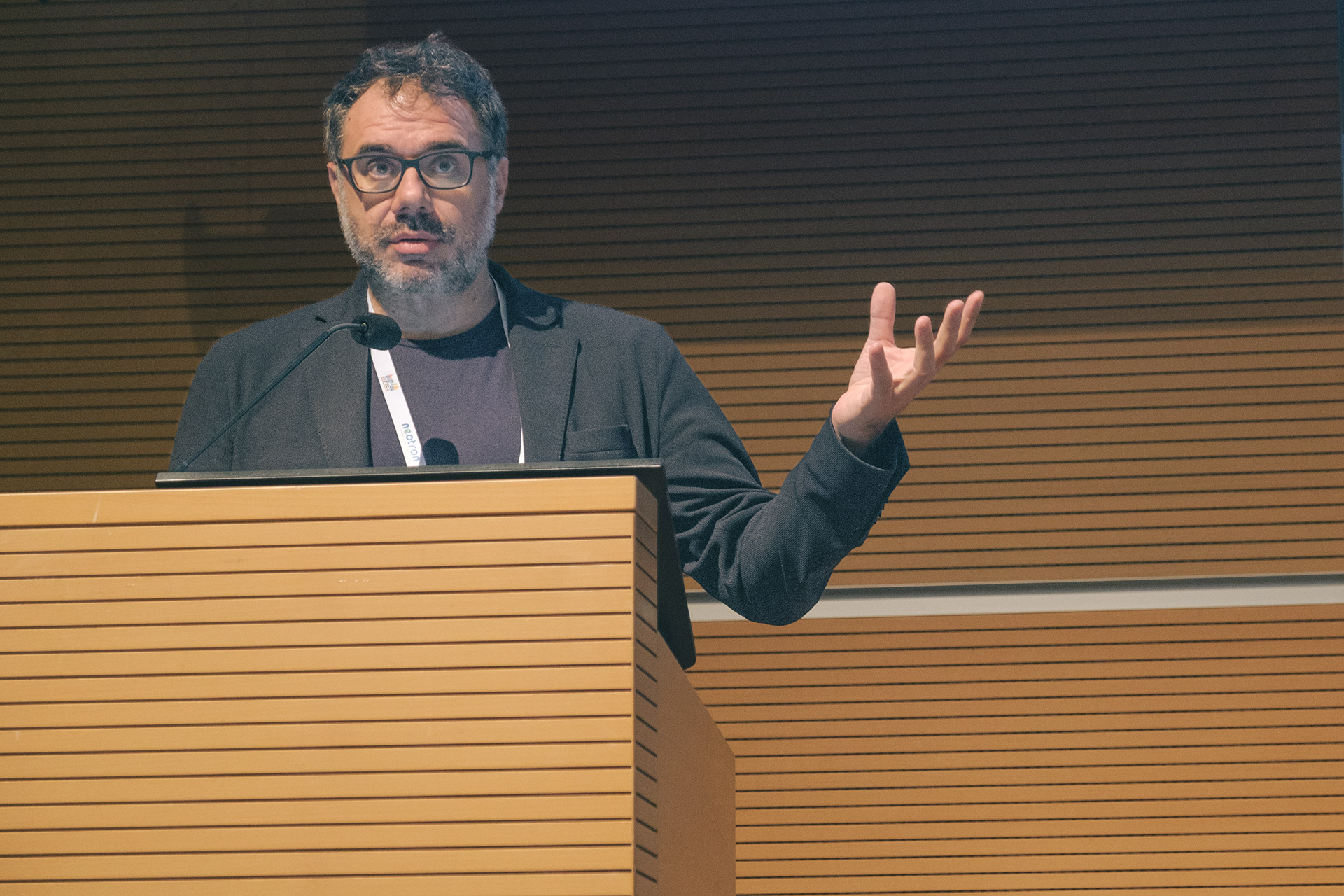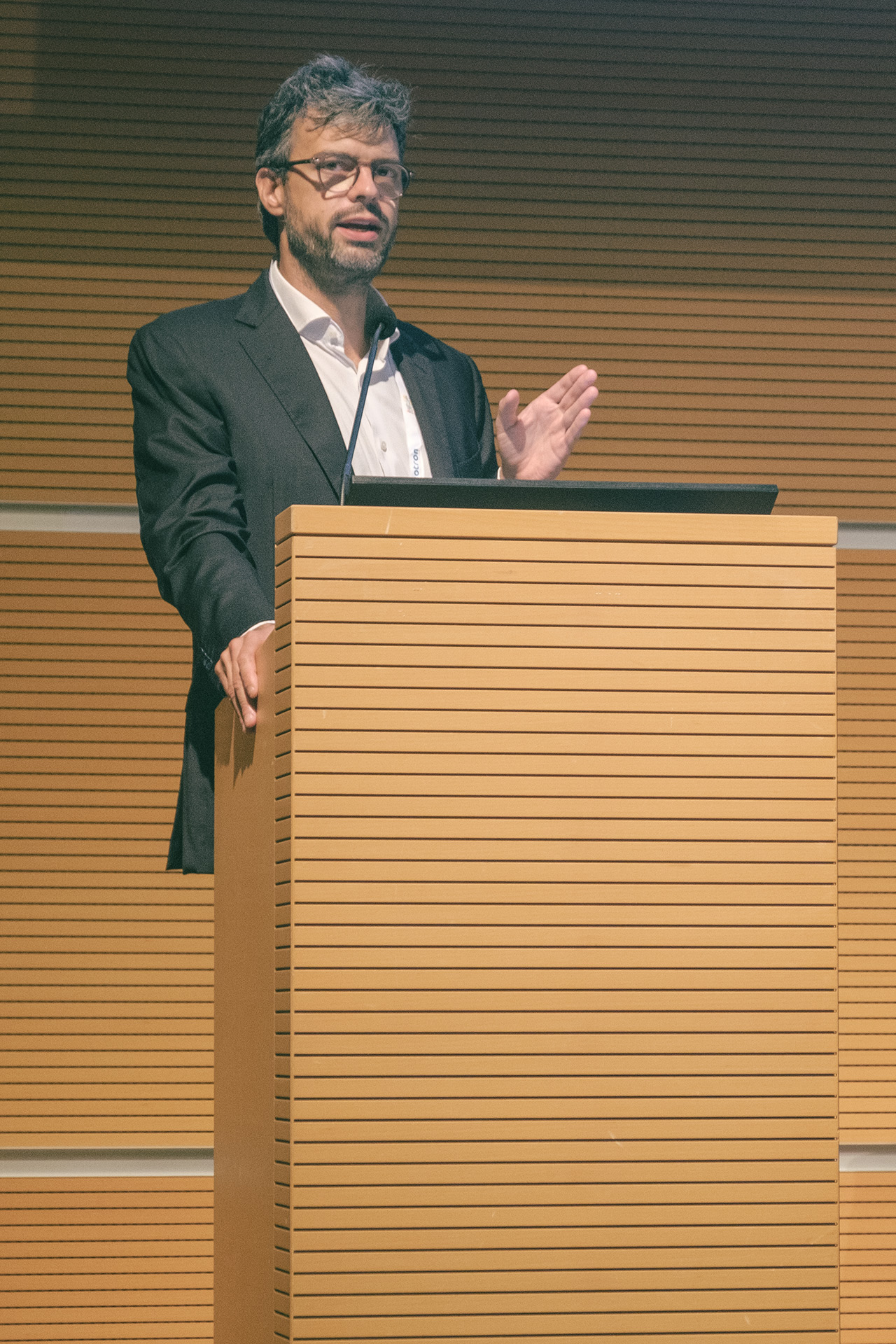Funded under the National Recovery and Resilience Plan (NRRP), Mission 4 Component 2 Investment 1.3, Theme 10.
OnFoods at the Iufost International Food Technology Congress: extensive research, but also public-private research governance strategies
The 22nd edition of the Iufost Congress, the International Union of Food Science and Technology, concluded yesterday, September 12th, in Rimini
The 22nd edition of the Iufost Congress, the International Union of Food Science and Technology, concluded yesterday, September 12th, in Rimini. OnFoods participated with over 50 researchers and hosted dedicated sessions.
Iufost 2024: An event that brought together over 2.500 researchers, businesses, and policymakers from around the world, aimed at addressing crucial challenges in the food sector, such as sustainability, food security, and technological innovation.
In this context, the OnFoods research network has seen significant growth. Many researchers were present, engaged in public presentations of their work, actively contributing to the scientific discussion on innovative topics related to food and sustainability.
Additionally, during the opening day of Iufost, four representatives from the OnFoods project addressed researchers from around the world, discussing not only research but also the governance and funding model adopted by the National Recovery and Resilience Plan (PNRR) to give an unprecedented boost to Italian research on food, nutrition, and sustainability.
As Daniele Del Rio, President of the OnFoods Foundation and Vice-Rector for Research and the Third Mission at the University of Parma, emphasized:
“Over 50 OnFoods speakers presented the results of their work at the 22nd edition of Iufost. Last Monday, we also had the opportunity to present the institutional and management aspects of this unique project during a two-hour session entirely dedicated to us. We are both grateful and proud of this, as we believe the public-private partnership model of OnFoods can serve as a strong inspiration for colleagues abroad as well.”

In her address, Patrizia Riso—Professor of Human Nutrition at the University of Milan, coordinator of Spoke 4, and Chair of the OnFoods Scientific Committee—highlighted a well-known and scientifically solid fact, but one that remains crucial to keep in mind: the current model of food production and consumption is no longer sustainable. This is where OnFoods' work begins and evolves, with all the associated difficulties and challenges.
"One of OnFoods' key missions," commented Riso, "is to contribute to the development of actions that improve food quality, both by expanding knowledge of the many factors that can influence it and by enhancing sustainable innovation capabilities. These innovations aim to meet the nutritional needs of the general population as well as specific groups. The transition towards healthier, plant-based, and more sustainable foods and diets is certainly a global goal, but it also presents a significant challenge. It requires multi-target research and innovation strategies capable of influencing both production and consumption while addressing critical issues and specific national needs. This topic is addressed in a structured way within OnFoods' Spoke 4, which includes 94 projects focused on product and process innovation, as well as promoting personalized and sustainable nutrition. The results of these studies will be crucial in contributing to the global discussion on the future of food and diet."

It’s worth noting that OnFoods acts as a coordination hub for the seven thematic spokes, each focused on a specific and crucial aspect of the food system. The spokes work synergistically to achieve common goals such as food safety and quality, nutrition, and the prevention of malnutrition. Overall, the project involves more than 600 people, including new researchers, PhD students, and post-docs, and encompasses over 300 scientific research projects within the seven thematic spokes.
Like a process of cross-pollination, ideas born in one spoke become innovations through the expertise of researchers working and collaborating across the other spokes. The challenge of coordination and interdisciplinarity is, therefore, significant.
"OnFoods, now about a year from the end of its three-year cycle, continues to work on a large scale to develop healthier, fairer, and more sustainable food models," commented Matteo Vittuari, Professor of Agricultural and Food Policy at the University of Bologna and coordinator of Spoke 7. "It does this by embracing interdisciplinarity, which is an essential ambition if we want to develop innovative methodologies aimed at analyzing the sustainability of food consumption in its various dimensions. To preserve the true meaning of 'interdisciplinarity,' it is crucial to start by developing a common language between disciplines, finding areas of convergence, and simplifying certain aspects of disciplinary jargon. Only then can we identify shared and challenging goals. To this end, Spoke 7 is organized into over 40 projects focused on understanding how to make food behaviors more sustainable, improving collective catering, promoting healthy and sustainable diets, identifying risk factors for childhood obesity, reducing food waste, and rethinking food policies."

But it is also about harmonizing the different practices of businesses and academia, which too often operate with different goals and at different speeds. Bringing the public and private sectors together to work in unison is another major challenge of the OnFoods project.
Alberto Dolci, Global Research & Innovation Manager at Bolton Food, the operational business unit of Bolton Group responsible for the production and marketing of food products and related brands, spoke on this topic.
Bolton Food, a business unit of Bolton Group, is a global player in the seafood sector, with full control over the tuna supply chain—from fishing to the commercialization of brands such as Rio Mare, Saupiquet, Isabel, and Cuca. It promotes sustainable development by collaborating with universities, research institutes, and NGOs, and contributes concrete solutions to global challenges, ensuring economic, environmental, and social sustainability.
Alberto Dolci discussed Bolton's involvement in the research activities of OnFoods' Spoke 2, 4, and 7, focusing on the EFFISH project, for which Dolci serves as the principal investigator. This project aims to improve the efficiency of the seafood production chain by leveraging existing data to identify standard procedures and reduce waste.
“For us at Bolton Food, the health and enhancement of raw materials are a fundamental pillar of our commitment to sustainability. We chose to join forces with the best universities and research institutes, creating a new model of public-private cooperation. Our participation in OnFoods is a concrete example of this synergy,” Dolci explained. “We are working together not only for a more sustainable food supply chain but also to promote greater attention to consumer health. Events like the Iufost Congress are essential for sharing these initiatives on a global scale, fostering scientific collaboration and innovation in the food sector.”



